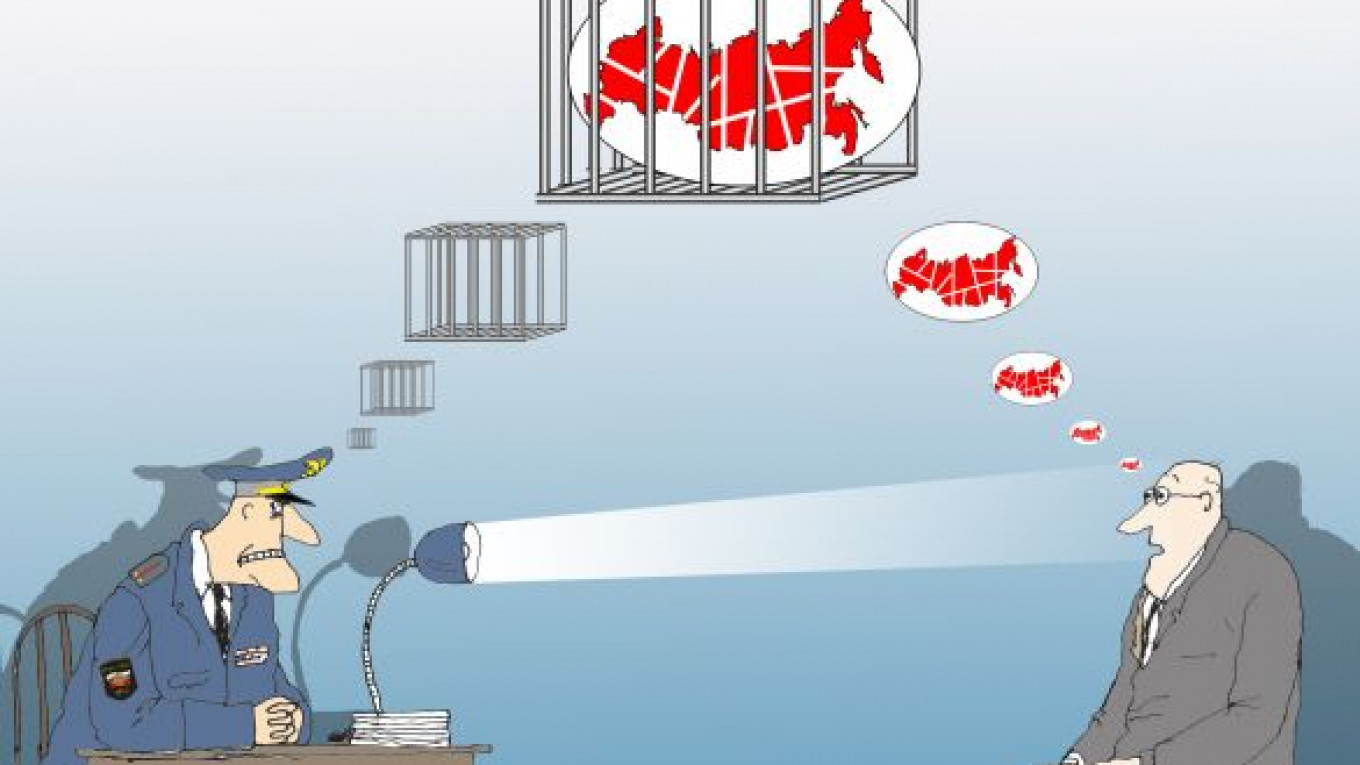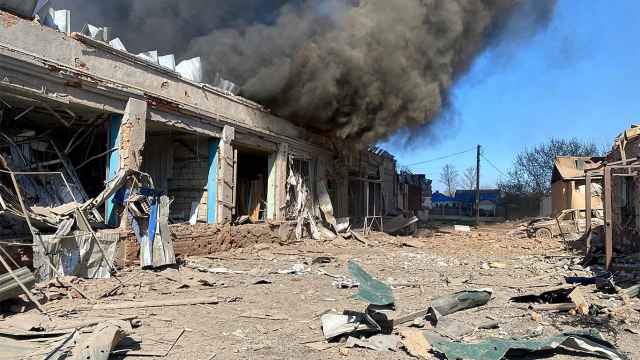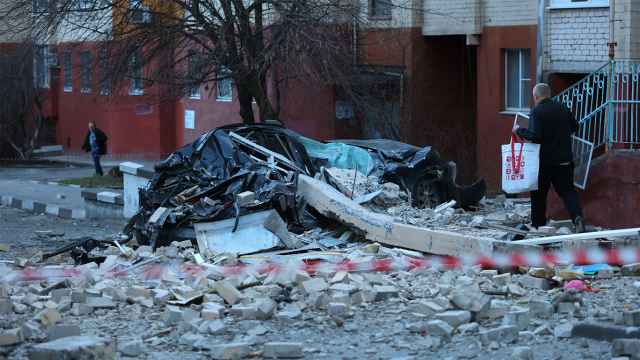The State Duma is considering a bill that would impose prison terms of three to 20 years for inciting separatism and for publicly supporting separatist movements. If the legislation becomes law, the Criminal Code would include a new article on "separatist propaganda" that would make the spreading of views that question Russia's territorial integrity a crime punishable by from three to six years in prison. If a person commits the same act while operating in an official capacity or with the help of mass media or the Internet, the penalty would increase to from 10 to 20 years behind bars.
The appearance of such a bill has been brewing for a long time. With increasing frequency, the authorities have been calling for harsh punishments for actions and ideas that George Orwell referred to as "thought crimes" in his dystopian novel "1984." The desire to punish "separatist talk" gained steam after Yevgenia Albats, a well-known liberal and pro-Western journalist, stated on a radio show that she did not "see any great tragedy if Russia were to split along the Ural Mountains." The same ultra-patriotic politicians and State Duma deputies who found it in their hearts to forgive Liberal Democratic Party leader Vladimir Zhirinovsky for his harsh statements against Caucasus natives and migrants were quick to condemn the "hated liberal" journalist for her comments.
In fact, the new bill could have been dubbed the "anti-Albats" law had not another scandal involving Zhirinovsky erupted soon after. Appearing on a television program, Zhirinovsky, in his usual emotional manner, suggested "ringing the Caucasus with barbed wire." An offended Duma deputy from the Caucasus submitted a complaint to the Prosecutor General and the LDPR leader himself was called before President Vladimir Putin. Speaking before the television cameras, Putin gently chided the longtime nationalist leader and asked him not to undermine the country's foundations. Zhirinovsky delivered an apology from the Duma rostrum and with that, it seemed that the scandal had passed. The bill making separatist statements punishable by lengthy prison terms was proposed soon after.
The bill is unlikely to pass in its current form, but the line of thinking that legislators are following is clear enough. Calls are becoming increasingly frequent for not just censoring the media and public debate, but also for imposing criminal penalties for various types of statements posted on social networks. Censorship advocates rally public opinion with anti-Western rhetoric, suggesting that the West, particularly the U.S., is pursuing a sinister conspiracy to dismember Russia and seize its vast natural resource wealth. A frighteningly large number of Russians believe not only this theory, but also in the existence of a conspiracy by the "homosexual lobby" to bring about the moral degradation of the country. These wildly ignorant ideas are even fairly widespread among members of the ruling elite, and perhaps most surprisingly, they are often espoused sincerely.
Conspiracy theories are appealing because they allow people to explain away practically every shortcoming or problem in the economic, social or political spheres without requiring any mental effort. According to this thinking, the Soviet Union collapsed because of a conspiracy against it headed by such people as former U.S. National Security Advisor Zbigniew Brzezinski. Russia's current economic problems are largely the result of a conspiracy against Russia's interests. A significant part of the Russian population sincerely believes there is a global conspiracy intent on partitioning Russia. And, if the problems are due to conspiracies, the fastest and most effective way to battle those problems is to struggle against the "conspirators." In practice this means that there is no need to acknowledge and resolve problems such as the troubled relationship between the Caucasus and the rest of Russia or to deal with the problems in the Caucasus itself that were brought on by rampant corruption, the collapse of the local economy and the unsettled state of the local population. The panacea for all of those systemic and complex problems is simple: ban all separatist expression.
The "ban on separatism" is only one of the areas official propaganda addresses when the ruling regime equates the territorial integrity of the country with its own survival. Ever more frequently, the authorities are saying that the country needs some type of "state ideology" similar to the one that existed during the Soviet era. Because the Constitution now prohibits incorporating such ideologies, officials are increasingly calling for amendments to make them possible.
At the same time, the advocates of such an ideology are unable to describe it in any detail or list its basic principles. What status will be granted to the Russian Orthodox Church, considering the country's large Muslim population? Will the state ideology impose restrictions to individual rights such as the freedom of speech — and if so, exactly how? Which state institutions will be responsible for developing and safeguarding the state ideology? The authors of these ideas apparently do not realize that any attempt to impose a universal ideology on modern society, coupled with an increasingly repressive attitude toward all forms of dissent, could have the unintended effect of further weakening public institutions, increasing political instability and undermining the very unity they purport to defend.
Georgy Bovt is a political analyst.







